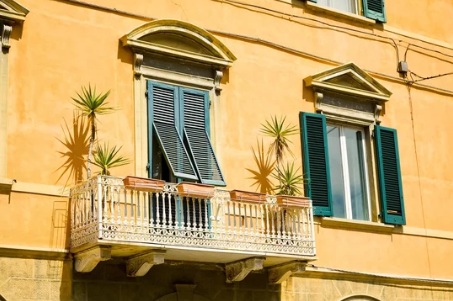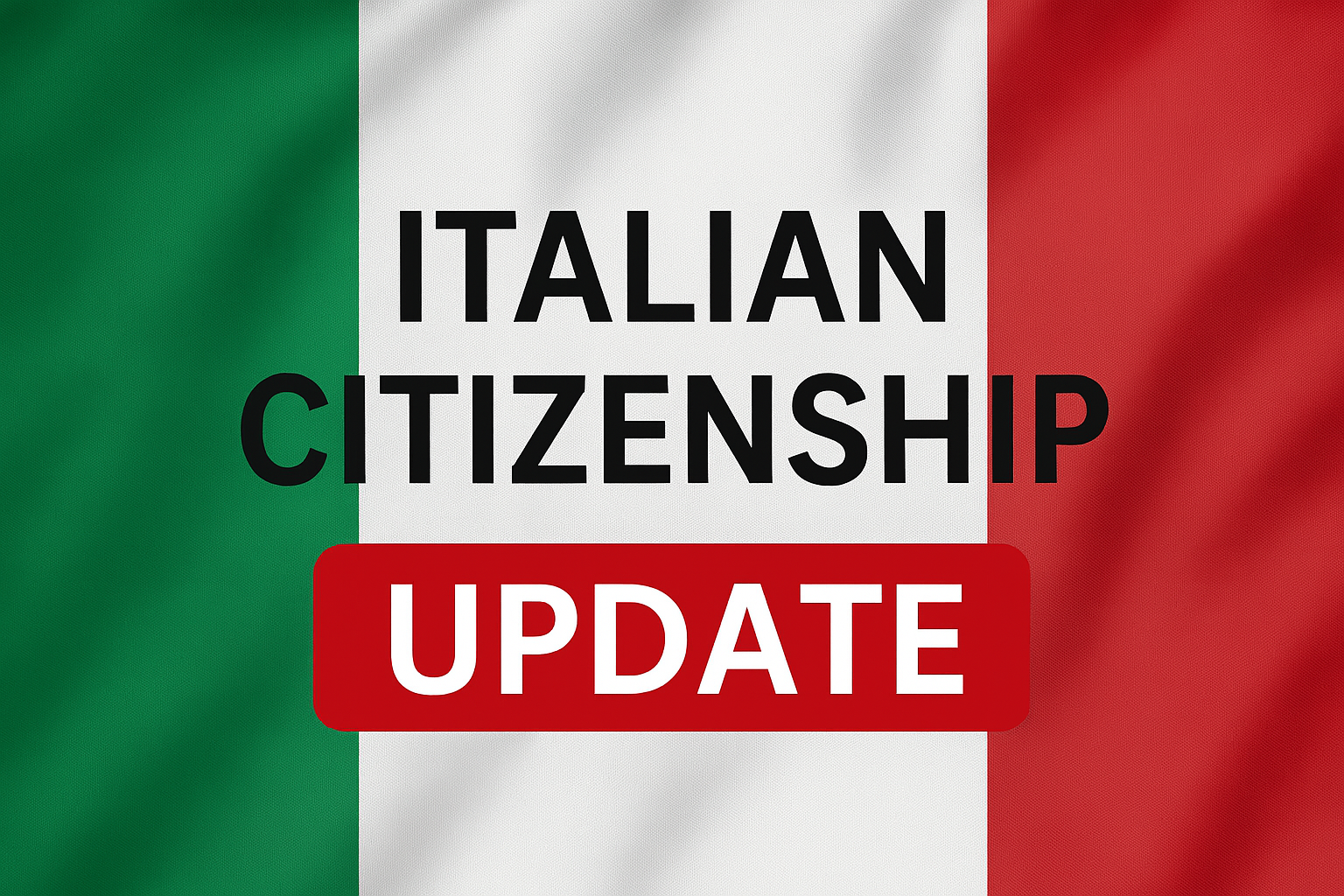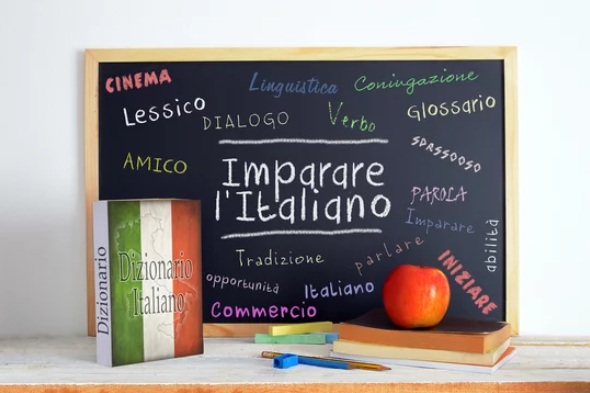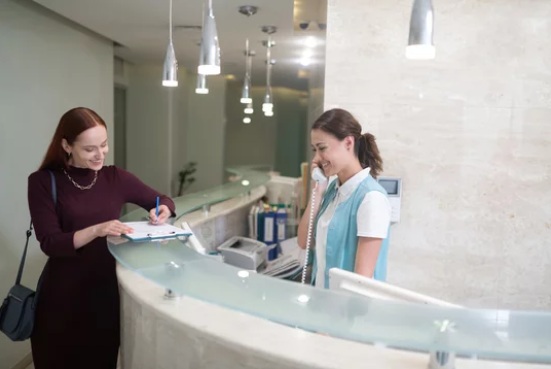Tuesday 22 April 2025 09:04
How to find an apartment in Rome: the ultimate expat guide
Guest Article written by helpmaterome.com Finding an apartment to rent in Rome is HARD. Demand for rentals is sky-high, so that little place you had your eye on last week has probably already gone by the time you pick up the phone to ask about it. You need to move quickly at all stages: calling, […]
#blog #housing #living in rome #renting property in italy #finding accommodation rome #rent apartment rome
read the news on blog – Expats living in Rome
Guest Article written by
helpmaterome.com
Finding an apartment to rent in Rome is HARD. Demand for rentals is sky-high, so that little place you had your eye on last week has probably already gone by the time you pick up the phone to ask about it. You need to move quickly at all stages: calling, viewing and putting in your offer. But haste can lead to costly mistakes. That’s why I’ve put together this guide, to make sure you’ve got everything covered before you part with your hard-earned cash.
Facebook can be a useful resource if you’re looking for a place of your own: check out groups such as
Rooms & Apartments for Rent in Rome
and Expats in Rome Noticeboard
.However, your most useful resource will likely be the property websites. The three main sites are
www.idealista.it
, www.immobiliare.it
, and www.casa.it.
The first two allow you to search in English and other languages, whereas casa.it seems only to be available in Italian.You might also find it useful to look in
www.cribmed.com
and www.expatslivinginrome.com
: while the number of properties on offer is smaller, the advantage is that you know already that the owners are willing to let to foreigners – something that many Italians are reluctant to do.The length of rental contracts is regulated by law in Italy. I cover this topic in more depth elsewhere, but essentially, if you’re looking for a short term let you will need a contratto transitorio, which is for up to 18 months, and if you’re looking for a longer rental, you should watch out for the terms 3+2 or 4+4. These refer in the first case to a contract of 3 years, automatically renewable for 2 years, and in the second to a contract of 4 years, automatically renewable for another 4 years.
(By the way, if you are moving to Rome for 6 months or less you’re better off looking on sites offering tourist accommodation, as you’re unlikely to find anyone willing to rent out “normal” accommodation for such a short period. In this case you will manage everything online and pay up front before arriving, just as with any other holiday accommodation, so the rest of this guide doesn’t apply to you.)
That’s right, I said “call”! The property websites invite you to message them, but it’s a waste of time – especially if you write in English. In the latter case, your chances of ever hearing back from them are practically zero.
If you don’t speak Italian, you might get lucky when you call: some of the agencies work extensively or even specialise in the expat market, so you’re likely to find someone who can speak English.
Before calling, note down anything not mentioned in the ad that might be important to you: contract type, aircon, internet, are pets permitted, dishwasher, washing machine, furnishings, etc. And don’t forget to ask about the security deposit (generally between 1 and 3 months’ rent) and the agency’s commission (anywhere from 1 month’s rent to 15% of the annual rent, in both cases +22% VAT).
The agency will probably ask you some questions about yourself: they won’t want to waste their time on viewings with candidates who don’t meet the landlord’s requirements. Generally, they will ask about your employment situation and how many people will be living with you; for a contratto transitorio, they will also ask why you need a short-term let. This may be because of a fixed term employment contract, attendance of a university course, the need for somewhere to stay while undergoing specialist medical treatment, or something else altogether – the important thing is that you have documentary evidence of the reason (your job contract or letter of acceptance from the college, a letter from the specialist doctor, etc.), as this is a legal requirement for this type of contract. You won’t need to show the evidence at this stage, but you will need it when you put in an offer.
For higher-end properties, there may also be a requirement for a fideussione bancaria – a bank guarantee.
One important point to note is that in Italy, it’s not common practice to engage your own realtor to accompany you on viewings to properties offered by other agencies. This means you will have to organise viewings individually with each agency. For this and other organisational reasons, you’re unlikely to be able to view several properties on the same day.
At the viewing, check that everything is as advertised, as well as verifying anything else you asked about. Also look for any obvious maintenance work that needs to be done: under Italian law, tenants are responsible for routine maintenance, so if anything’s not working, you should ask for it to be fixed as a condition of your proposal.
Other points to check: is there a concierge? Will utility contracts remain in the landlord’s name (and the bills be added to the rent) or will you have to change them to your name? How much do they come to each month, roughly speaking? How does rubbish collection work: is it door-to-door (if so, how often?) or through communal bins on the street? Is the central heating independent or centralised for the entire condominium? How noisy is the apartment with the windows closed? How dark with the lights off? For furnished properties, is the landlord willing to remove/add furnishings (e.g., remove an unwanted table or add an extra bed or a clothes dryer?) Are instructions available for essential fittings (such as the boiler and any thermostats)? How easy is it to park nearby?
Red flags: Evasive responses from the agent (or landlord, if they’re renting directly). Signs of mould or insect infestation, unpleasant smells, general neglect and dirt – both in the apartment itself and in the condominium. (Note that the installation of smoke and carbon monoxide detectors in rented apartments is not required under Italian law, nor do there need to be any fire extinguishers.)
Once you’ve found the right place, you need to move quickly. You will need to provide some or all of the following: a copy of your ID, proof of income, employment contract/tax return, references from previous landlords, bank guarantee (if required), and (for a contratto transitorio) documentary evidence of your need for a short-term let, so make sure you have them ready. You will also need to back up your offer with the equivalent of one month’s rent (the holding deposit): this can be paid by cheque, in cash or (if the agency is willing) by bank transfer, and will be returned to you if the landlord decides not to accept your offer (if your application is accepted, it will form part of your security deposit).
In your proposal, you can add any conditions to your offer: e.g. installation, repair or replacement of a dishwasher or oven, removal of unneeded furnishings, repainting of the walls, replacing light fittings, etc. You can also try proposing a lower rent than advertised, although in most cases it’s unlikely to be accepted.
Most agencies have their own template and will help you fill it in.
The proposal should include the following details:
• your details;
• address and cadastral description of the apartment; description of the number and type of rooms;
• owner and/or landlord’s details;
• monthly rent;
• duration of contract, start date;
• the amount of the security deposit;
• the amount of the holding deposit and who it will be held by;
• How long your proposal is valid for (I recommend a maximum of 15 days, but 7-10 days is preferable);
• Authorisation of the processing of your personal data under the EU GDPR.
• address and cadastral description of the apartment; description of the number and type of rooms;
• owner and/or landlord’s details;
• monthly rent;
• duration of contract, start date;
• the amount of the security deposit;
• the amount of the holding deposit and who it will be held by;
• How long your proposal is valid for (I recommend a maximum of 15 days, but 7-10 days is preferable);
• Authorisation of the processing of your personal data under the EU GDPR.
At this point the agency may also ask you to sign a contract committing to pay their commission, although they usually wait until the landlord has accepted your offer.
Once your offer has been accepted, the agency will arrange a meeting with you and the landlord to sign the rental contract. At this point, you will have to pay the rest of the security deposit, the first month’s rent and the agency’s commission.
The agent will go through the contract point by point to make sure that everyone understands and agrees with them: you can still ask for amendments at this stage if there are any errors or omissions.
The rental contract will typically contain the following clauses:
• landlord’s identifying details and address;
• your identifying details and address;
• address and cadastral description of the apartment; description of the number and type of rooms;
• duration, start and end date of the rental period;
• conditions for renewal at the end of the period;
• conditions for renewal at the end of the first renewal period;
• conditions for tenant’s early withdrawal from the contract;
• conditions under which the apartment is let (e.g. residential use);
• (if applicable) tenant’s conditions;
• conditions for handing over, maintaining and returning the apartment;
• rental fee and how it should be paid;
• (if applicable): landlord’s option to use the cedolare secca tax regime;
• additional fees (generally the monthly condominium fee, normally paid directly to the landlord in addition to the monthly rent. It may also include utilities and other expenses, depending on what has been agreed);
• consequences of defaulting on/late payments;
• security deposit: amount and conditions for its return at the end of the contract,
• (if applicable) special conditions relating to fittings and installations;
• modifications to the property;
• repairs;
• landlord’s access to the property;
• conditions if the landlord intends to sell the property during the renal period;
• damage by third parties and interruptions to services;
• election of domicile;
• address for correspondence between the parties;
• contractual modifications and place of jurisdiction;
• privacy declaration;
• registration fees and stamp duty;
• Provision of documents (e.g. energy certificate and boiler instructions);
• Specific approval of various clauses in accordance with the Italian civil code.
• your identifying details and address;
• address and cadastral description of the apartment; description of the number and type of rooms;
• duration, start and end date of the rental period;
• conditions for renewal at the end of the period;
• conditions for renewal at the end of the first renewal period;
• conditions for tenant’s early withdrawal from the contract;
• conditions under which the apartment is let (e.g. residential use);
• (if applicable) tenant’s conditions;
• conditions for handing over, maintaining and returning the apartment;
• rental fee and how it should be paid;
• (if applicable): landlord’s option to use the cedolare secca tax regime;
• additional fees (generally the monthly condominium fee, normally paid directly to the landlord in addition to the monthly rent. It may also include utilities and other expenses, depending on what has been agreed);
• consequences of defaulting on/late payments;
• security deposit: amount and conditions for its return at the end of the contract,
• (if applicable) special conditions relating to fittings and installations;
• modifications to the property;
• repairs;
• landlord’s access to the property;
• conditions if the landlord intends to sell the property during the renal period;
• damage by third parties and interruptions to services;
• election of domicile;
• address for correspondence between the parties;
• contractual modifications and place of jurisdiction;
• privacy declaration;
• registration fees and stamp duty;
• Provision of documents (e.g. energy certificate and boiler instructions);
• Specific approval of various clauses in accordance with the Italian civil code.
Once the contract has been signed and all moneys have been paid, you will (assuming the contract is effective immediately) be handed the keys. While the agency should already have done an inventory, if possible you should ask the agent and/or landlord to check the property with you at this point, to ensure that all is in order.
And that’s it! Enjoy your new home.
And that’s it! Enjoy your new home.
Finding the right rental contract in Rome depends on the length of your stay, your specific needs, and what landlords are willing to offer. Whether you’re here for a few months or planning a more permanent move, understanding these options will help you make an informed decision.
If all this seems too daunting to manage on your own, or if you simply don’t speak enough (or any) Italian, count on me! I can support you at every step of the way: from making enquiries and arranging viewings to liaising with agencies and landlords and helping you negotiate conditions and understand the contract, I’ll be there for you. Book your free consultation with Helpmate Rome now!
Disclaimer: Please note the above information is shared in good faith but is not intended and should not be construed as legal advice, and might not reflect current Italian law. I recommend consulting a lawyer for any legal or contractual concerns you may have.
The full version of this article is available
here

For updates on Italian immigration and expat-related topics, be sure to
subscribe to our newsletter
or contact us for a consultation!Need Help with Your Citizenship Application? Email us at
legal@expatslivinginrome.com
for a free consultation!
Posted: April 22, 2025
If you’re a foreigner planning to marry an Italian in Italy in 2025, there are important legal steps to follow. This guide walks you through the process: Legal Requirements • Both partners must be at least 18 years old • Neither partner can be currently married • Divorce or death certificates must be provided if previously married Documents […]

Posted: April 22, 2025
Guest Article written by helpmaterome.com Finding an apartment to rent in Rome is HARD. Demand for rentals is sky-high, so that little place you had your eye on last week has probably already gone by the time you pick up the phone to ask about it. You need to move quickly at all stages: calling, […]

Posted: April 22, 2025
Italy has entered a period of official mourning, or duelo, following the passing of His Holiness Pope Francis I on April 21, 2025. For foreign residents within the capital, the customs and procedures associated with a papal demise and subsequent election may present unfamiliar traditions. This article endeavors to illuminate the role of the papacy, […]

Posted: April 14, 2025
Whether you’re religious or not, Easter is a great opportunity to visit Italy or acquire an Italian mindset. The weather is pleasant, and there are numerous intriguing customs to observe, ranging from sprinting monks and massive sculptures to colorful processions and larger-than-life reenactments. The Papal Mass and Urbi et Orbi Blessing in Vatican City The […]

Posted: April 7, 2025
Spring in Italy is a magical time. The weather is warm but not too hot, the flowers are in full bloom, and the cities come alive with festivals, outdoor activities, and cultural events. For expats living in Italy, it’s the perfect time to explore the country’s diverse landscapes and vibrant culture. Here’s a breakdown of […]

Posted: March 29, 2025
Italy has recently enacted a significant reform to its citizenship laws, introducing stricter requirements for those seeking to claim Italian citizenship by descent (iure sanguinis). The new law, approved on March 28, 2025, is set to impact thousands of people worldwide who had planned to apply for Italian citizenship through their ancestral ties. What Has […]

Posted: March 25, 2025
Guest Article written by Stefano from senseitalian.com If you’ve ever tried learning a new language, you know how frustrating it can be. You start out full of motivation, eager to dive into a new world of words and expressions. But soon, reality hits: native speakers talk too fast, grammar feels overwhelming, and even though you […]

Posted: March 25, 2025
The beautiful architecture, magnificent cuisine, and rich history make Italy a dream destination for many expats. While life in Italy offers countless delights, taking care of your health should be a top priority when living here as an expat. Getting travel insurance for expats living abroad doesn’t just tick a box; it’s your gateway to […]
